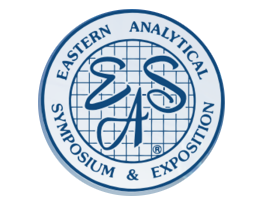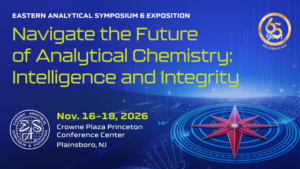Practical Headspace Gas Chromatography
One-Day Course E13-28, Wednesday, November 20th, 8:30am – 5:00pm
Dr. Mary Ellen P. McNally, DuPont, Wilmington, DE
Dr. Thomas A. Brettell, Cedar Crest College, Allentown, PA
COURSE DESCRIPTION
Headspace sampling is an established technique for volatile sample introduction in chromatography. When complicated sample matrices make sample preparation difficult, the gas headspace above the sample is a valuable source of information. Accurately measuring this gas phase can be challenging. Specifically, the challenges are establishing a representative sample, devising an accurate calibration for the matrix of interest and replicate analyses from a static system. These topics as well as discussions on theory, appropriate apparatus and instrumentation, and applications from the pharmaceutical industry (specifically addressing the new USP467 Guidelines), forensic science, manufacturing, environmental, and food and flavor industry will be presented in this course.
WHO SHOULD ATTEND
This one-day course will benefit method development scientists, R&D analysts, R&D formulators, QC analysts, regulatory affairs associates, R&D, RA and QA/QC managers for both bulk drug and finished dosage form developers and manufacturers.
TOPICS
1. Introduction
* Introduction and background of speakers
* Logistics
* Course outline/scope of course
* Course materials
2. Theory: Basic Principles of Headspace GC
* Partition ratio
* Phase ratio
* Physical chemical aspects
* Multiple headspace extraction
* Static headspace
* Passive headspace
– SPME
* Dynamic headspace (Purge and Trap)
* Headspace single drop microextraction Techniques
3. Instrumentation
* Gas tight injection
* Balanced-pressure system
* Pressure-loop system
* Sample preparation
* Sample vials
4. Quantitation
5. System Optimization/Troubleshooting
* Transfer line
* Interfaces
6. Applications
* Pharmaceutical applications
– <USP467>
– European pharmacopoeia tests
* Forensic applications
* Blood alcohol determination
* Environmental applications
* Manufacturing/industrial applications
* Food and flavor applications
7. Wrap Up/Reflections/Discussion
ABOUT THE INSTRUCTORS
Dr. Mary Ellen P. McNally (Course Director) is a Technical Fellow at the Stine Haskell Research Center for the Crop Protection Products business unit of E.I. du Pont de Nemours & Co., Inc. in Newark, DE. Her main research areas are in the fields of separations, sample preparation and sensors. Most of her work has been focused in the environmental area, both in environmental fate of agricultural products, ultra-trace level analysis and detection as well as analysis associated with manufacturing and process development. Her Ph.D. thesis was in the area of Headspace analysis of priority pollutants. Dr. McNally received the American Microchemical Society Steyermark Award for her work conducted in the field of microanalysis, the Chromatography Forum of Delaware Valley Award for contributions to theory, instrumentation and applications to the field of chromatography and service to the organization. Mary Ellen has been recognized for her contributions to the field of supercritical fluids by the Midwest Supercritical Fluid Chromatography Discussion and the Tri-State Analytical Supercritical Fluid Discussion Groups. Dr. McNally is a member the editorial advisory board for LCGC magazine and a former member of the Instrumentation Panel and the Advisory Board for the journal of Analytical Chemistry and the editorial board of Talanta. Within DuPont, Dr. McNally has received DuPont’s highest award for contributions to trace level analysis as well as the DuPont Scientific Leadership Award. This award afforded her the opportunity to work at the Imperial College in London in capillary electrochromatography as well as LC and CE on a microchip and at the Molecular Engineering Cooperative Research Center of CSIRO in Sydney Australia working in the area of biosensors.
Dr. Thomas A. Brettell retired in 2007 as the Director of the New Jersey State Police Office of Forensic Sciences and is presently an Assistant Professor in the Chemical and Physical Sciences Department at Cedar Crest College. Dr. Brettell’s main research areas are in chromatography and medico-legal aspects of alcohol. His Ph.D. thesis was in the area of Headspace Gas Chromatographic analysis of fire debris accelerants. He has taught advanced separation courses and has taught in the gas chromatography course sponsored by the Chromatography Forum of the Delaware Valley. In 1993, he received a commendation from the NJSP Superintendent for his work on a narcotics investigation. Dr. Brettell is the past Chair of the Criminalistics Section of the American Academy of Forensic Sciences and the past President of the Chromatography Forum of the Delaware Valley. Tom was presented the Chromatography Forum of the Delaware Valley Award in 1997 for service to the Forum and accomplishments in the field of separation science, and also served on the Advisory Board of the Journal of Analytical Chemistry from 1996 to 1998. In 2004, Dr. Brettell was appointed to the Governor’s Advisory Council Against Sexual Violence and served until 2006. He presently serves on the National Safety Council’s Committee on Alcohol and Other Drugs. Dr. Brettell is a certified Diplomat of the American Board of Criminalistics and a Fellow in the American Academy of Forensic Sciences.

